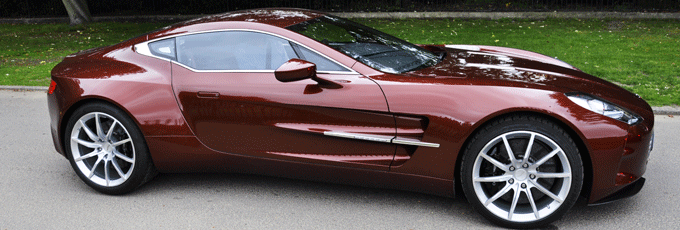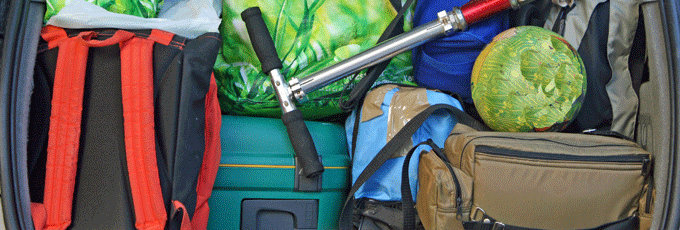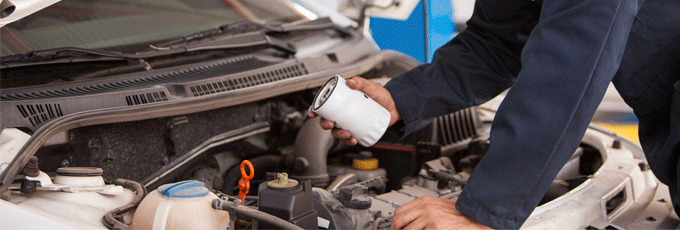As petrol prices continue to rise, fuel economy is becoming a very important topic. Lets take a look at some simple steps than can help you reduce your fuel bill no matter what type of driving you do.
- More Efficient Tires
- Improve Aerodynamics
- Reduce Weight
- Drive Smarter
- Mechanical Efficiency
- Ignore the Gimmicks
Your car’s engine is designed to burn fuel to produce energy which is then used to propel your car. Inevitably there are a number of ways that this energy dissipates before even reaching the wheels. Getting the best fuel economy is all about reducing the extent of this energy loss, thereby reducing the amount of fuel needed in the first place.
Tyre Efficiency

Lets start with one of the less obvious contributors to excess fuel consumption – tires. It has been estimated that up to 30% of the energy that does actually reach your wheels is lost in the inefficient nature of tires.
There are two different ways that this energy is lost, the first of which being simple rolling resistance. This is the amount of friction between your tire and the road surface. The more friction generated here, the more energy is required to rotate those tires. The simplest way to improve your rolling resistance is to keep them at the correct pressure. For the average passenger car this is somewhere between 27 and 32PSI but you should always check your vehicle’s manual or the plate located inside the driver’s side door jamb.
The lesser known factor involved is a process known as hysteresis. Basically, when your tire flexes to accommodate the weight of your car and the imperfections in the road surface, it absorbs energy. While some of this energy is regained once the tire snaps back into shape, a small percentage will be lost.
So where to from here? Lucky for us this has been a question that has plagued tire manufacturer R&D departments for some time. The end result is a decent selection of Low Rolling Resistance (LRR) tires that make use of new techniques and compounds. The exact efficiency of each model is measured by two factors:
Rolling Resistance Force (RRF)
The amount of torque (force) required to rotate the tyre on a smooth surface at 80km/h
Rolling Resistance Coefficient (RRC)
A calculation of the RRF divided by the average load placed on that tire
While you can easily compare the RRF for two different sets of tires, it does not take into account the tire size or the weight of your car. RRC does account for this but makes it almost impossible to compare tires of different sizes.
So as for the question of which tire is best, speak to your local tire shop. Manufacturers will continue to improve their product and who better to keep up with the latest innovation than the people who deal with them every day.
Did you know: Worn tires will always provide you with better fuel economy as their reduced tread makes for less rolling resistance!
Improved Aerodynamics

Aerodynamics are all about reducing the wind resistance being applied to your vehicle. Particularly in the higher speed ranges it can be a significant force which is exactly why cars built to go fast look like the one above and not a Ford Transit.
Car manufacturers do quite a good job of this in the average passenger vehicle too which is why you should generally avoid any external additions to your car. Avoid leaving roof racks, roof cages, bike racks etc attached unless they are actually being used as these will generally more wind resistance than you realise and waste precious energy.
Did you know: Worn tires will always provide you with better fuel economy as their reduced tread makes for less rolling resistance!
Reduce Weight

This one is a much easier concept and one most important for those driving on city streets or suburban areas. The more weight you cat around in your car, the more energy is required to accelerate back up to the speed limit. Particularly if you have to deal with a lot of traffic lights, this can make a significant difference over the duration of a single tank.
Time to leave those golf clubs at home and get all those shoes off the back floor! You would be surprised just how quickly an additional 50kg of unnecessary items can accumulate and it will cost you.
Ultimately you should have nothing in your car besides a spare wheel, the tools to replace it and a first aid kit.
Drive Smarter

Here are a few small things that each of us can do every day that will add up to some significant fuel savings.
Turn off the air conditioner
When travelling below highway speeds, turn your air conditioner off. Running your air-con requires energy generated by the engine. At 100km/h it is thought that the drag generated by having your windows down requires more energy than running your air conditioner. While the evidence is shaky on this “fact”, its definitely more comfortable with the windows up.
Avoid traffic
If you can help it, plan your drive to avoid as much traffic as possible. The constant stop-start of peak hour traffic means a lot of time spent idling and accelerating, both of which are a huge waste of fuel.
No unnecessary braking
When possible (and safe!), try to avoid heavy braking. The more speed you lose, the more you have to accelerate again afterwards. If you see a red light ahead, begin slowing down early and you might avoid the red light.
Slow down
You should always stick to the speed limit but particularly on long drives, if you’re in no rush then slowing down just 10km/h will save you a significant amount of petrol.
Use cruise control for highway driving
If you travel on the highway regularly and have cruise control, use it. It will provide smoother adjustments on hills and maintain a constant speed on flat ground. No more unnecessary acceleration.
Smooth Acceleration
If you don’t have cruise control or you’re not on the highway, try to keep your acceleration smooth and steady. Hard acceleration requires a lot of energy.
Obviously, each of these suggestions should only every be done when safe and practical. Early braking in peak hour traffic is generally not the best idea!
Engine Efficiency

No matter what you do, your engine is going to lose some of its power in ways that you cannot control. Having said that, there are a handful of small, cost effective things you can do to keep your car running as efficiently as possible.
Use synthetic oil
Synthetic motor oil can give you around a 4.5% increase in efficiency. This might seem trivial but since your oil has to be replaced regularly anyway, why not make the smarter choice?
Maintain a clean air filter
In most modern cars, replacing the air filter requires about 60 seconds and almost no mechanical knowledge so there is rarely an excuse to use the same filter for years at a time. If you have been driving somewhere particularly dusty, at the very least take it out and give it a quick clean.
Let it warm up
So much of the damage done to your car’s engine is during the warmup phase and not surprisingly, damaged engines are less efficient. With advancements in synthetic oil and engine design, the best way to warm up your car is to simply drive it. You may have grown up watching your parents start the car early so it could warm up in the driveway before you drove anywhere but this is no longer the advice of motoring professionals. Give your car around 30 seconds to gain oil pressure then start driving. Go easy on the accelerator for the first few minutes and you will get your car up to a safe temperature as fast as possible.
You should always try to keep your car’s servicing up to date as they will take care of both the oil and air filter for you in the process and make sure your car is running smoothly.
Ignore the Gimmicks

As with most things in life, if it sounds too good to be true then it probably is. There are countless products available that promise to improve your fuel economy and/or horsepower. Any product that claims it will improve power and fuel economy is probably a lie since increasing power requires more fuel, plain and simple.
As for products that claim to “ionize molecules in your engine” or something to that effect… if such a product were real and cost effective they would already be in use in modern vehicles.
That’s not to say that all products claiming to increase efficiency are scams. Some fuel additives have been proven to help to some extent, particularly in older cars, but the reality is that these products typically cost more than you are likely to save at the pump.
Just be sure to do some research before adding anything to your fuel tank or engine bay.




